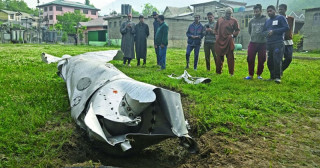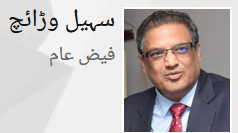Re: سائنس نےبالآخر کافی کی افادیت تسلیم کرل&a
[h=2]Love Coffee? Your Heart May, Too[/h] Three to five cups daily appeared to lower risk of clogged arteries, study says
WebMD News from HealthDay
By Steven Reinberg
HealthDay Reporter
MONDAY, March 2, 2015 (HealthDay News) -- Drinking three to five cups of
coffee a day may reduce the risk of developing
clogged arteries, which in turn might reduce the risk for
heart attack, a new study suggests.
"We found that drinking three to five cups a day was associated with less calcium build-up in the arteries," said researcher Dr. Eliseo Guallar, a professor from the department of epidemiology and medicine at Johns Hopkins Bloomberg School of Public Health in Baltimore.
Calcium build-up is an early sign of
hardening of the arteries and the risk for
heart disease, he explained.
Guallar said that this study cannot show a direct cause-and-effect relationship between
coffee and reduced calcium in the arteries, but noted that the association between these factors is very strong.
Although the reasons for this association are not known, Guallar said, researchers speculated that coffee may reduce the risk for
type 2 diabetes, a risk factor for hardening of the arteries.
Guallar doesn't go so far as to recommend that people start drinking coffee just to prevent
heart disease. But he did note, "People should not be concerned about coffee intake. This is a habit that is not harmful to the heart."
The report was published March 2 online in the journal
Heart.
Dr. Gregg Fonarow, a professor of cardiology at the University of California, Los Angeles, said, "Multiple studies have shown that coffee consumption is associated with lower risk of
heart attacks and strokes, with lowest risk with three to five cups of coffee a day."
In fact, the 2015 Dietary Guidelines Advisory Committee recently released a report saying that the health risks associated with drinking that much coffee are minimal, and having as many as five cups of coffee each day is linked to several health benefits, including a reduced risk of
type 2 diabetes, Fonarow said.
For the study, Guallar's team collected data on more than 25,000 men and women living in South Korea. Their average age was 41. None had
signs of heart disease. During a yearly health exam, the participants were asked about what they ate and drank. They all had CT scans to determine how much calcium had built up in their heart arteries.
The researchers then compared calcium build-up with how much coffee participants drank. They found that as coffee consumption rose, the amount of calcium build-up declined, with those who drank three to five cups a day having the least amount of calcium build-up. Guallar said that although the study was done on people in South Korea, he expects the findings would be similar for American coffee drinkers.
The association between higher coffee consumption and lower calcium build-up was the same when the study categorized people by age, sex,
smoking,
alcohol consumption,
obesity,
diabetes,
high blood pressure and
high cholesterol, the researchers said.
They also took into account factors such as education, level of
physical activity level, family history of
heart disease and dietary consumption of fruits, vegetables, red meat and processed meats, according to the study.
The study did not differentiate between regular and decaf coffee, though the authors noted that decaf is not popular among Korean coffee drinkers.
Samantha Heller is a senior clinical nutritionist at NYU Langone Medical Center in New York City. She said, "That morning cup o' joe may offer some unexpected health benefits, including a lower risk of
heart disease,
type 2 diabetes and
Parkinson's disease.
"But this is not all about the
caffeine," she said. Coffee contains more than 1,000 chemicals, including
antioxidants that may be contributing to the health benefits. However, coffee may increase
LDL cholesterol, affect pregnancy outcomes and increase anxiety and
blood pressure, Heller said.
"If you do not drink coffee, there is no reason to start drinking it," she said. "If you do, the sweet spot seems to be in the three- to five-cup range -- these are 8-ounce cups, not the 32-ounce jugs of coffee we are used to seeing," Heller said.
And what you put in the coffee makes a difference, she said. "Whipped cream, syrups, coffee creamers with partially hydrogenated oils, cream, artificial sweeteners or too much sugar can knock the health benefits of the coffee bean out the window. So enjoy your java, but limit the add-ins," Heller advised.
View Article Sources 
SOURCES: Eliseo Guallar, M.D., professor, department of epidemiology and medicine, Johns Hopkins Bloomberg School of Public Health, Baltimore, Md.; Gregg Fonarow, M.D., professor, cardiology, University of California, Los Angeles; Samantha Heller, M.S., R.D., senior clinical nutritionist, NYU Langone Medical Center, New York City; March 2, 2015,
Heart, online












































